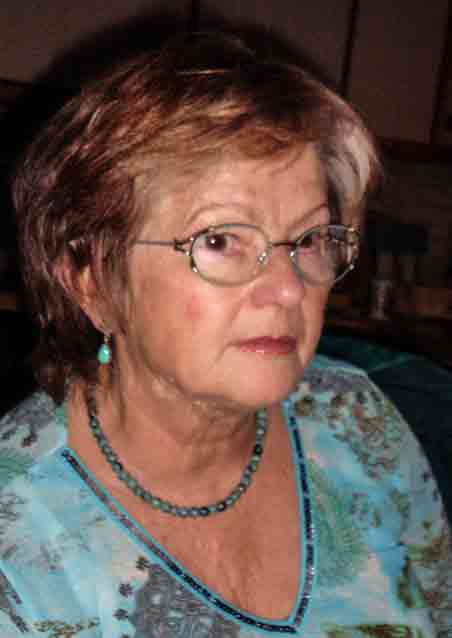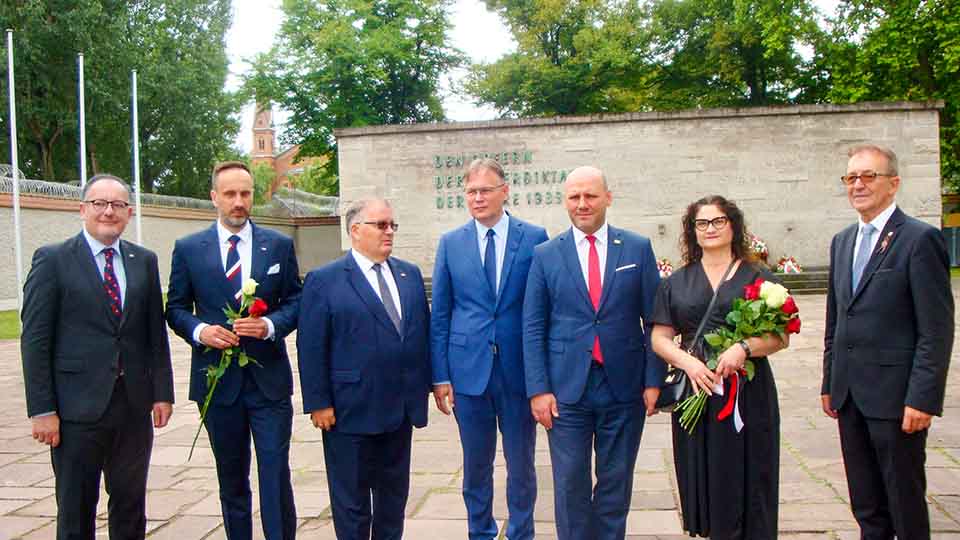August 27, 2022 is the 100th anniversary of the foundation of the Union of Poles in Germany (Związek Polaków w Niemczech, ZPwN). Before the ceremonial gala begins, it is worth considering the problems that the Association has been struggling with since the end of World War II.
The most important long-term task of the ZPwN is the fight to restore the status of a national minority. It is very exhausting, carried out on several levels. The union must win it, because it is a fight to preserve Polishness in Germany.
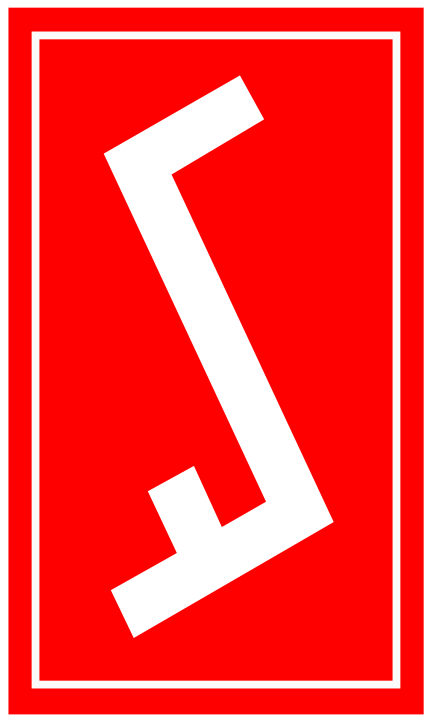
The Rodło symbol (Source: Wikipedia)
The Germans claim that, since the national-conservative PiS (Prawo i Sprawiedliwość, Law and Justice) party regained power in Poland, there has been a loud call for recognition of Poles in Germany as a national minority. This is only part of the truth, as the restoration of the status of a national minority was demanded by a group of Poles organized in the post-war Union, the one under the sign of "Rodło". It was long before 2015.
Government circles, "historians," and German politicians claim that it was the PiS government that "warmed up" the topic of Poles' right to restore minority status, taken away by Göring in 1940. This is also only part of the truth, because in August 2009, the Berlin lawyer Stefan Hambura sent a letter to Chancellor Angela Merkel demanding that the current status of the Polish minority in Germany be regulated. In the official reply of the Federal Ministry of Justice, the federal government confirmed that the ban on the activities of the Polish minority organization in Germany, represented by the Union of Poles in Germany, was legally invalid from the beginning and therefore this status still exists. Unfortunately, this document did not reach the ZPwN on time, Stefan Hambura died suddenly in May 2020 in Warsaw, the documents remained in his Berlin desk and are unavailable to the Union.
Even before the speech of the patron Hambury, at a joint meeting of the Main Board of the Supreme Council and the Audit Committee of the Union of Poles in Germany on August 24, 2004 in Göttingen, 6 demands were made against the German government. Among these six postulates that can be considered the "decalogue" of the Union family, the most important is the last one, which reads: "We demand the restoration of the status of a national minority to Poles in Germany."
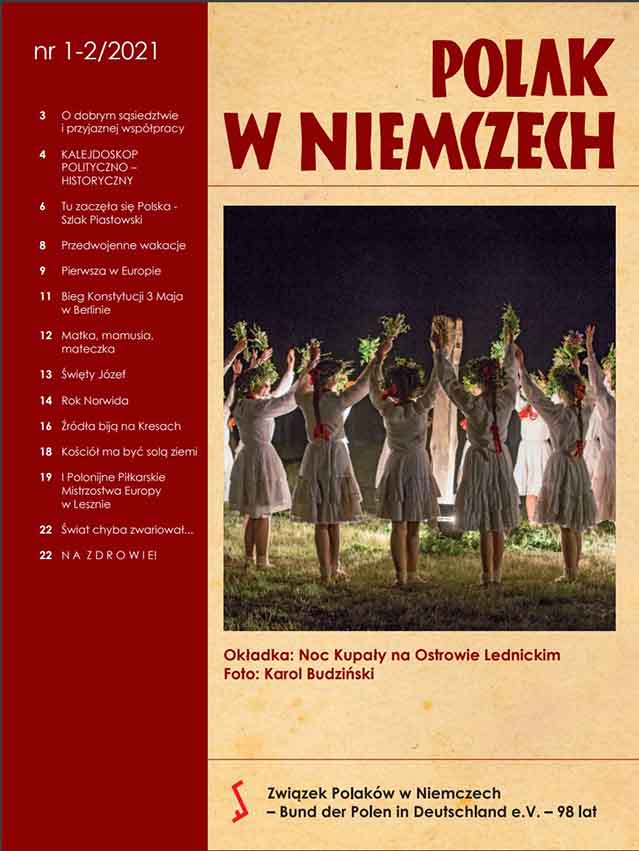
The cover of the journal "A Pole in Germany" (Source: ZPwN - zpwn.org)
The Unionists' efforts to restore the status of a national minority are not facilitated by the statements of some representatives of science and politics from Germany. Historian, Dr. Andrzej Kałuża, researcher at the German Institute "Polska" in Darmstadt claims that the Polish national minority is "only a Polish-speaking group in Germany" and explains: "(this group) does not have the status of a national minority in the light of formal law, because it is not one of the traditional minorities living in Germany, but is composed of migrants." He emphasizes that "representatives of the «Polonia» organization in Germany, despite everything, strive for this status." He points out that "both historical arguments and the differentiation of the self-identification of members of the Polish group in Germany cannot justify the status of a national minority."
Politician Thorsten Klute (lawyer from North Rhine-Westphalia, SPD) states: “from a legal point of view, it will not be possible (to recognize the status of a national minority), because in today's Germany there are no areas of settlement of Polish ancestors. If we extend the term «settlement» far and wide, «to be an ancestor» is to refer to the times of the so-called «Poles from the Ruhr». In that case, we have very few who would call themselves Poles today."
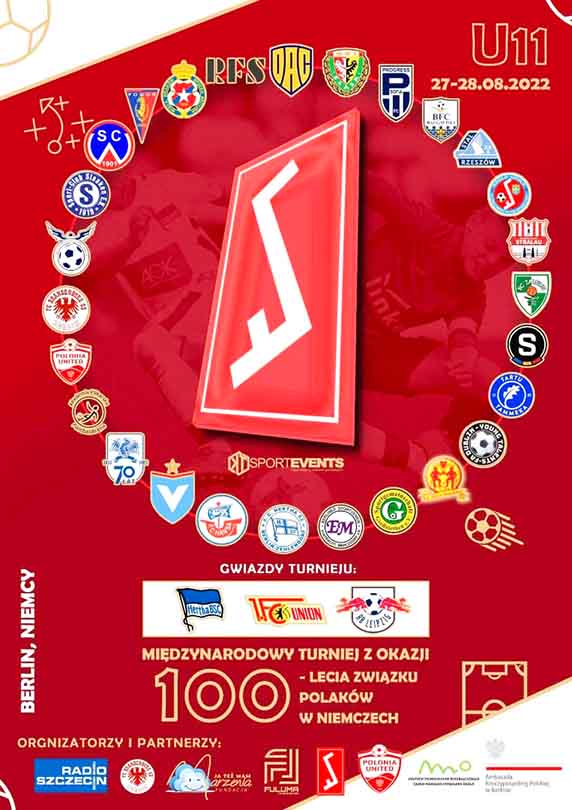
Poster of a children's football tournament for the opening of the celebration of the centenary of the Union of Poles in Germany (Source: ZPwN - zpwn.org)
There are two barriers to the resolution, or even just the easing of the dispute. Apart from the aforementioned ambiguity in the interpretation of the term "national minority", there is another, particularly painful problem, concerning the teaching of the Polish language to children of the Polish diaspora. Despite the conclusion of an agreement called "The Treaty between the Republic of Poland and the Federal Republic of Germany on good neighborhood and friendly cooperation of 17-06-1991" (named in 2011 by Mr. Jaskułowski "a venerable monument"), learning the Polish language in Germany leaves a lot to be desired. Generally, there is a sense of a lack of political will in solving the problem on the German side.
However, there are voices supporting the Polish position when it comes to learning the Polish language. The association "Polintegro" operating in Hesse calls for raising the status of teaching the Polish language. Krzysztof Tadrowski from "Polintegro" emphasizes:
As long as the Polish language is not a school subject with grades on the certificate included in the average, rather than just an additional after-school activity in the afternoon, there will be little interest on the part of young people and parents (...) Polish language must be a subject also available to students of German origin
Such a swallow does not yet make a spring, but it is a signal to the Unionists that the seed has been sewn.
Apart from the above-mentioned lack of political will, there is also another reason for the unsatisfactory implementation of the free teaching of the Polish language as one of the foreign languages to choose in secondary schools. It is that education in Germany is the responsibility of the local Land. There are also financial and organizational issues.
Józef Malinowski, the chairman of the Union of Poles in Germany since 2013, notices some progress in teaching Polish as the language of the country of origin in the public school system. The standing Conference of the Ministers of Culture, Science and Education of the German lands established certain rules and passed them on to the federal states, but not all of them choose to become acquainted with them, and did not implement them. There are no implementation directives for these arrangements.
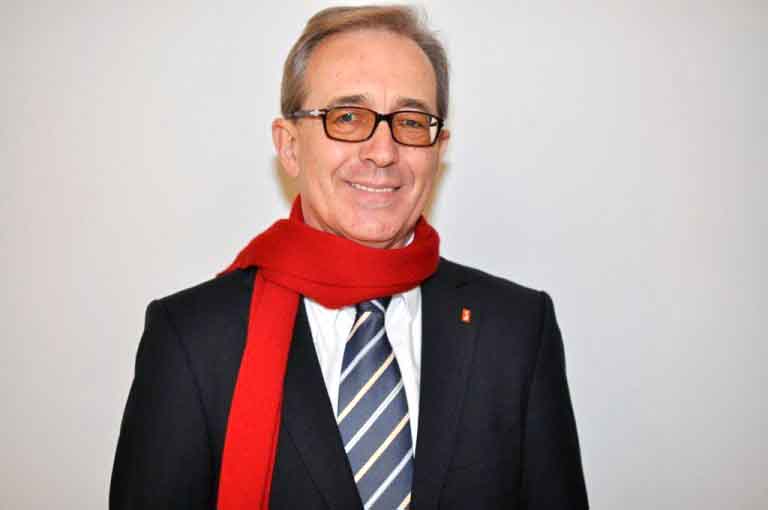
Józef Malinowski, president of the Union of Poles in Germany (Source: zpwn.org)
In an interview with DW, J. Malinowski points to one more deficiency. "We demand a similar strategy for organizations operating outside the school system, vis-à-vis education community organizations." He wants to enforce for these organizations from the German side the so-called institutional support, i.e. permanent financing.
The lands, with their independent educational systems, are the right partners for teaching the Polish language. It should be emphasized that North Rhine-Westphalia has the best way to do this. In the capital city of Düsseldorf, at the Catholic Primary School at Mettmanner Strasse, the Polish language is taught by Anna Rozwadowska, who praises the comfortable situation of mother tongue teachers in this state and the financing of free lessons for children by the education authorities. In other lands, the parents organize the education themselves. Lessons are not free.
Due to the imbalance in teaching German in Poland and Polish in the Federal Republic, the Polish government in the Budget Act for 2022 reduced in the educational part by PLN 39.8 million ($8.4 million) the general subsidy for local government units for national and ethnic minorities' language teaching. The money was allocated to increase the special-purpose reserve in the newly created item "Funds for teaching Polish in Germany". The Ministry of Education emphasized that the changes introduced in this way in the Sejm of the Republic of Poland restore Polish-German symmetry in mutual relations, in terms of the way of treating the German minority in Poland, and the Polish minority in Germany.
It did not take long for a sharp reaction to this matter: the Union of German Social and Cultural Associations in Poland immediately complained to the European Commission about the actions of the Polish government, and in an article entitled "The SPD parliamentary group condemns discrimination against the German minority in Poland" of January 29, 2022, it was written:
This means clear discrimination against the German minority in our neighboring country. (…) Used as allegations that Germany does not support Polish language teaching in schools and discriminates against Poles in Germany, they are not justified. In the federal states, efforts are being made to expand the offer of Polish language lessons, which has already grown significantly.
This is an exaggerated statement and does not correspond to reality.
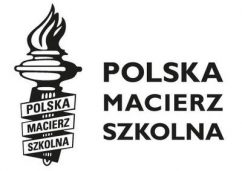
Logo of the Polish School Matrix (Source: polskamacierz.org)
The current goal of the Association is to reactivate the "Polish School Matrix" (Polska Macierz Szkolna) in Germany, which has a fifty-year history. It was established on May 15, 1969. The motto of the Matrix is: "We care for the upbringing of the next generations of Poles in exile in Polish culture and national traditions" and its slogan is:
As in my homeland, thus in a foreign country,
I keep watch and guard the treasure of the Polish language,
the Polish spirit, and the Polish custom.
This organization is the oldest educational center in Germany, which, teaching the Polish language, Polish culture and traditions, engages in the upbringing of successive generations of young Poles. Behind the organization of the Polish School Matrix is a tradition dating back to the period of partitions, when the struggle for the right to teach in the national language and (even more importantly) in the Polish spirit was one of the most important elements of the struggle of our ancestors.
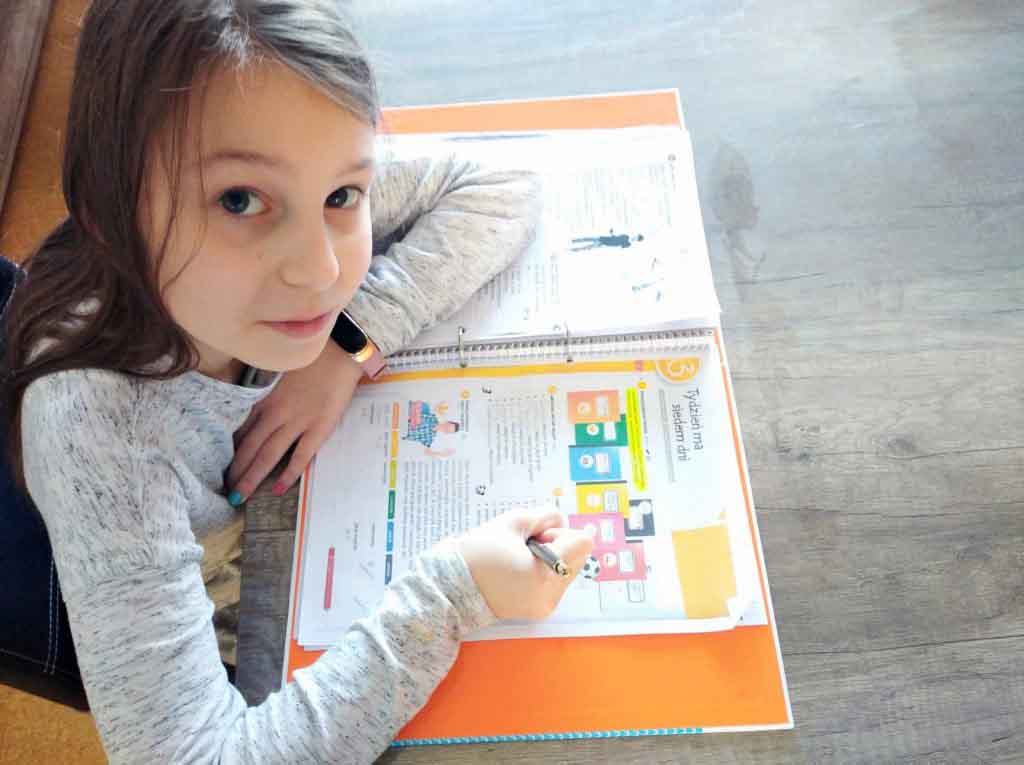
School of the Polish School Matrix in Paderborn, Germany (Source: polskamsz.de)
The Polish School Matrix in Germany currently runs 10 schools. It also helps Polish children in Germany, organizes cultural events, runs language and reading projects, and integrates the Polish community. This institution will be very intensely looked after by the Union of Poles in Germany.
On October 7, 2019, the celebration of the 50th anniversary of the Polish Matrix in Germany took place in Cologne, with the participation of the First Lady of the Republic of Poland, Agata Kornhauser-Duda.
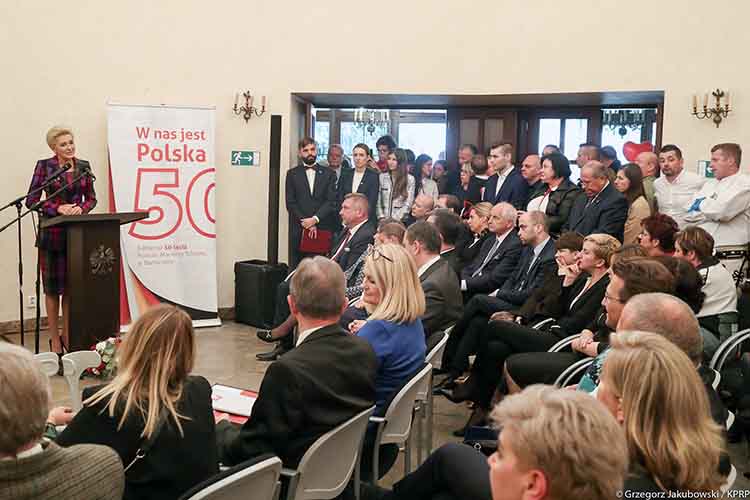
The First Lady of the Republic of Poland, Agata Kornhauser-Duda, at the celebration of the 50th anniversary of the Polish School Matrix in Germany (Source: prezydent.pl)
The celebrations were held under the slogan "Poland is in us". The First Lady of the Republic of Poland said:
Although you live in a foreign country, you have preserved your national identity and heritage in your hearts, minds, memories, family homes and co-created institutions. It is these values that make us one community, no matter where in the world we are thrown by personal fate or a dramatic history. Your activity includes several years of pursuit that preceded the formal registration, as well as the previously more than 20 years of efforts by Polish priests, teachers, and social activists, to pass the knowledge of the Polish language, native history, native culture and customs to the young generation, first-liberated prisoners of war, and prisoners of camps, and then emigrants settled in Germany.
The current president, Ewa Mierzejewska, said about this institution: “It is unfair to call the Polish School Matrix“ «Sunday schools» or «missionary schools». In her opinion, these are "schools - centers of Polishness where something is happening". Ms Mierzejewska proposes to develop a system of control over social schools with partners in the federal states. She emphasizes that "it is the Land authorities that should finance us".
The Union of Poles in Germany, its chairman Józef Malinowski and the Union's Management Board, therefore have many obstacles to overcome, many problems to solve. We strongly believe that they will succeed. Just like the long struggle for the return of the "Polish House" at Kortländerstr. has successfully ended in Bochum, this is how the fight for the "Polish School Matrix" will end positively.
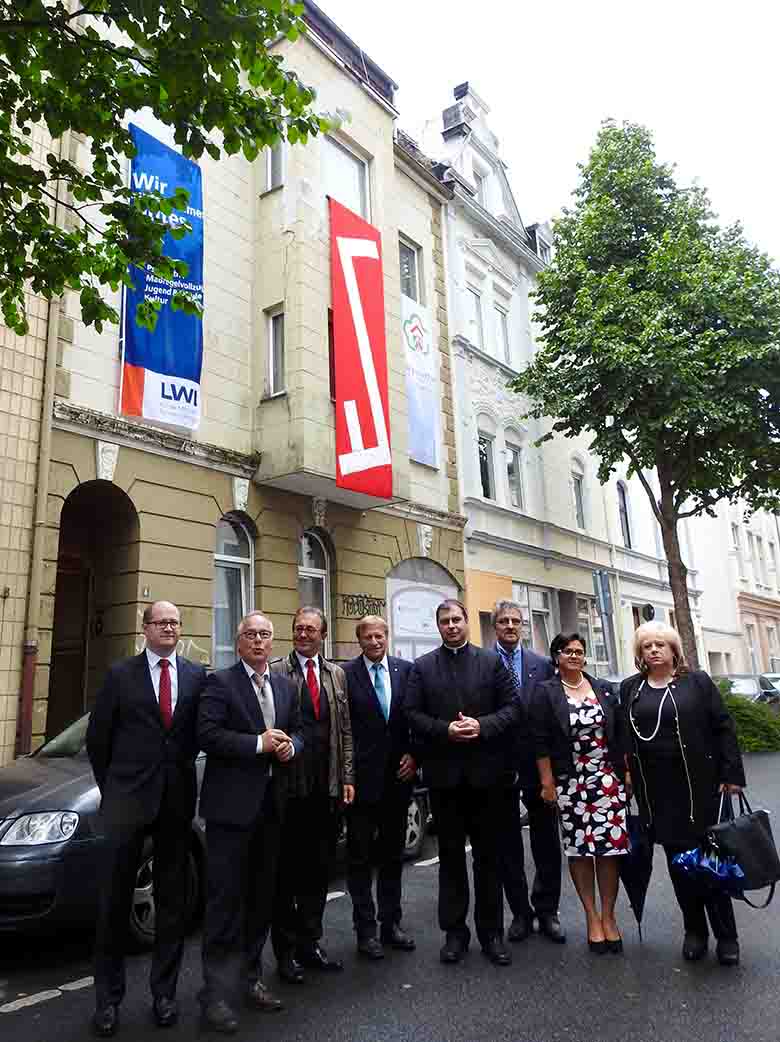
The renovation of the Polish House in Bochum can start, 2016 (Source: bochum.cool)
When the documentation of the decision to renovate the Polish House in Bochum was handed over to President Józef Malinowski (photo above), the following words were uttered by the Minister for Federal Affairs of Europe Franz-Josef Lersch-Mense (SPD):
I am very happy that the renovation of this important building can now begin. This is an important sign of the intense relationship between North Rhine-Westphalia and Poland. Places such as the Polish House in Bochum are important for memory and for the exchange between Germans and Poles.
We — wholeheartedly — wish the Union of Poles in Germany similar successes for its 100th anniversary!
The best anniversary gift, however, would be to return the status of a national minority to Poles living permanently in Germany. Let us pray for such a "miracle".
Translation from Polish by Andrew Woźniewicz.



